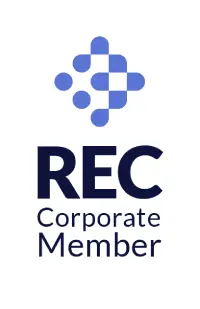The radiology nurse’s role is fast changing, driven by the changes in technology as well as health delivery. A subspecialty of nursing has evolved in complexity and brought forth opportunities and challenges for a wide population of registered nurses who are practicing diagnostic imaging and interventional radiology. Here, we discuss important trends affecting the future of radiology nursing and their significance to health professionals in this dynamic field.
1. Advanced Technology Integration
One of the major trends in radiology highlighted by the nurses was the development and utilization of advanced technologies, such as AI and remote monitoring. AI increasingly works through the enhancement of diagnostic accuracy during a judgmental process by reviewing medical images and pursuing prioritization regarding case urgency, leading to a group of findings. The radiology nurses, therefore, play a relay role in dealing with such technologies in relation to critical patients and ensuring they are effectively applied.
Another fast-growing aspect of radiology nursing is teleradiology. With new technology in teleradiology being developed, today’s radiology nurses are capable of caring for patients over long distances. This is particularly of great importance in areas that might be rural or underserved, where access to even more advanced levels of healthcare services might be limited. Radiology nurses now use wearable devices and other remote monitoring technologies for tracking in real time the vital signs of their patients when they are not really physically in the hospital.
2. Growth in Interventional Radiology
Today, interventional radiology is one of the largest growth subspecialties in radiology and is drastically changing the role of the radiology nurse. The interventions include minimal invasions such as biopsies, catheter placements, and insertions of stents under imaging guidance with the aid of ultrasound or CT scans. The radiology nurses assisting in such IR settings will work during procedures, provide sedation, and monitor and manage post-procedure care. The expansion of IR services is increasing, as is the demand for more specialized radiology nurses to get appropriate knowledge in this area.
3. Expanding Leadership and Advanced Practice Roles
This specialist practice of radiology nursing will continue to evolve as demands for leadership and advanced practice roles increase into the future due to a continually complex and escalating number of services provided within the specialty of radiology. Highly experienced radiology nurses practice in the roles of Nurse Manager, Clinical Coordinator, and Director of Radiology Nursing. All these roles encompass staff management along with responsibility for oversight of department operations and quality improvement initiatives. With the trend being similar, the advanced practice positions of this specialty within radiology, such as nurse practitioners and clinical nurse specialists, continue to increase in their numbers and thus provide opportunities to conduct advanced diagnostic procedures and leadership in patient care initiatives in radiological nurses.
Additional Read: Training Nurses in 2024: Preparing for the Future of Healthcare
4. Innovation of Patient-Centered Care and Safety Protocols
Radiology nurses are at the front liners in the implementation of innovative patient care and safety. Newer technologies with dose optimization software help ensure that ionizing radiation is absolutely appropriate during imaging procedures. Other arrangements in caring include the use of virtual reality in preparing patients for the nature of the procedures to be undertaken and the employment of imaging by customized-made protocols. All this will lead to improving patient outcomes, enhancing patient experiences, reducing anxiety, and being more compliant with the pre- and post-procedure instructions.
5. Education and Certification
Education and certification are other turfs in which radiology nursing has been based related to its future expansion. With the more active use of AI and other technologies, radiology nursing education has been shaping into more simulation-based and interdisciplinary learning. Continuing education and certification leading to the attainment of credentials, such as the Certified Radiology Nurse, are vital for advancement in this sphere. Nurses are needed in this field, proving to be experts, which opens the window to numerous opportunities.
6. Implementing New Infection Control Protocols
Since the COVID-19 pandemic, the focus on infection control across all sectors of healthcare is newer. In radiology, nurses are using advanced disinfection technologies including the use of UV-C light sterilization and materials engineered with antimicrobial coatings; this is to minimize the risk of infection transmission. This element is very important, especially in environments that experience a high patient turnover and shared equipment.
Wrapping Up
In 2024, radiology nursing continues to evolve, blending advanced technology with patient-centered care. As the profession adapts to new challenges, including the integration of AI and complex imaging techniques, the need for skilled and compassionate nurses is more critical than ever.
We at Dynamic Health Staff are committed to supporting this evolution by offering comprehensive training programs, tailored recruitment solutions, and ongoing professional development opportunities. By partnering with us, radiology nurses can stay ahead of industry trends, ensuring they provide the highest standard of care while advancing their careers in this dynamic and rapidly changing field.
If you are interested, contact us today at enquiry@dynamichealthstaff.com or +919810017608 to know more about how we can help you.
Reach out to us today: Dynamic Health Staff!






